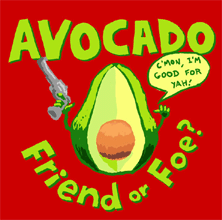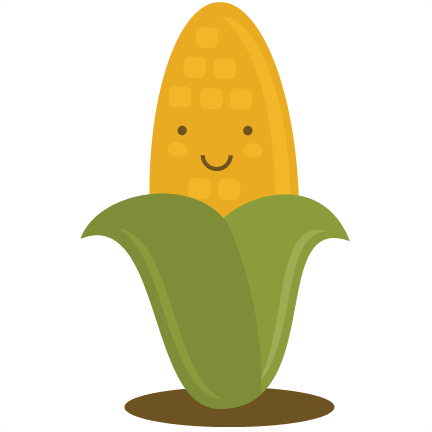*Content for this post was provided by Daisy Song for BirdCages4Less. Daisy is the resident Chop expert in my bird group and is proudly owned by three adopted parrots - who all love their daily servings of Chop! Thank you, Daisy*
Welcome to the wonderful world of chop! As you all know, or will soon find out, being owned by our feathered friends is not an easy job. One of the hardest parts is providing them with a balanced diet, especially if they haven’t been exposed to many different types of foods since they were chicks. Instead of creating a fresh food dish daily for your flock, chop is a pre-prepared way to provide an exciting and well-balanced meal every day without produce spoiling in the fridge!
*WHAT* to Chop
Chop is a simple concept: chopped up vegetables, fruits, nuts, and whatever else you feed your birds. There are many methods of chopping, storing, and picking the ingredients to best fit your flock. Before discussing HOW to Chop, it’s a great idea to plan out WHAT to Chop. Creating a great base Chop recipe that you can always rely on makes it easy to experiment in the future without scaring the poo out of your parrots! Not all birds will readily accept fresh vegetables; you may end up wasting quite a bit of produce during the introductory period.
Keep your base Chop recipe simple and inexpensive: diced carrots, broccoli, apples, spicy peppers, and almonds.
Chopped almonds are an essential ingredient for my flock, due to my Red-bellied Parrot, Claptrap. He has flat out refused food for days because we forgot to add almonds to a batch of Chop! Seeds can also be added to this mix if you have a seed eater who is resistant to trying veggies; picky parrots will be forced to forage for their seeds and end up eating bits of vegetables in the process.
It is important that Chop is mostly leafy, green, or both, vegetables with a few fruits or sweet vegetables. This means vegetables like broccoli, kale, squash, bok choy, beets, and okra should be the bulk of the meal. Fruits and sweet vegetables, such as berries, apples, corn, or sweet potato, should be added sparingly as they are high in sugar and low in levels of other nutrients.
Once your bird finally figures out the orange bits in their bowl aren’t rat poison – you can expand! A slow approach is preferable where only one or two new vegetables are added or subtracted at a time. For example, to transition birds onto a chop including squash, you’ll want to offer the base Chop plus squash for 2 or 3 batches before you add or subtract anything else. Going from the base Chop to a completely new Chop recipe lacking many of the base ingredients could cause either an upset tummy, or your bird to reject the batch all together!
Here are a few examples of my past creations:
- Carrots with greens, broccoli, apples, spicy peppers, bell peppers, okra, bok choy, beets with tops (this one stains anything your bird poops on!), corn, almonds, spicy pepper flakes, pellets
- Carrots with greens, broccoli, apples, spicy peppers, yellow squash, snap peas, radish with tops, kale, sweet peppers, almonds, pellets
- Baby carrots, broccoli, apples, spicy peppers, cooked pumpkin, okra, bok choy, ginger, almonds, oats, quinoa, pellets
Get creative! There are (obviously) foods you should avoid, but there are infinite safe combinations to make! And don’t worry, your bird will help you with the decision process. You can count flung food as a veto, for future reference. My Grey hates corn; he let me know by picking out every single kernel in the bowl and leaving it behind in a small pile, but devoured the rest of the Chop mixture! But don’t let one failed batch get you down. There are hundreds of different kinds of produce at the supermarket, farmer’s market, or food swap. You’ll peg down your parrot’s likes and dislikes over time.
Here is a quick list of DO and DO NOT foods for your parrot’s Chop! Please note that this is not a complete list. There are some items included that are debated by parronts on whether they are healthy for parrots; it is up to each individual owner to decide what is best for the flock.
NO-GOs (Harmful or Toxic)

- Avocado
- onions (or anything in this family)
- alcohol
- chocolate
- mushrooms
- uncooked beans
- fruit seeds/pits
- human junk food
FRUITS
- Berries
- apple
- banana
- cherry without pits
- pineapple
- passionfruit
- grapes
- mango
- coconut
- watermelon
- pomegranate seeds
- kiwi
- lychee
VEGETABLES
- Broccoli

Source: www.misskatecuttables.com - cauliflower
- carrots
- pumpkin or squash
- radish
- corn
- peas
- okra
- zucchini
- green beans or snap peas
- cooked potatoes
PEPPERS
- bell peppers
- sweet bell peppers
- jalapenos
- habaneros (small amounts)
- chile verde
- serrano
- Anaheim
LEAFY GREENS and HERBS
- Kale
- dandelion greens
- Brussel sprouts
- bok choy
- chard
- arugula
- basil
- mint
- parsley
- cilantro
- sage
- watercress
NUTS and BEANS
- Cooked beans
- almond
- brazil nut
- hazelnut
- macadamia nut
- palm nut
- walnut
- pistachio
- pecan
- pine nut
- peanut (human food grade, out of shell recommended)
GRAINS and FLOURS
- Barley
- rice (brown, wild, red)
- wheat
- quinoa
- millet
- almond
- oats
We’re just getting started! If you want to continue learning about an easy way to add fresh vegetables and fruit, hop on over to the next installment! We love hearing from you. Let us know how Chop goes over with your flock in the comments below, or share a picture on our Facebook page.
6,539 total views, 4 views today
